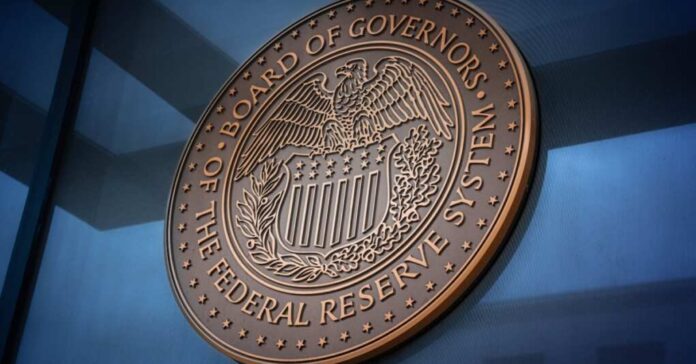
Well, here we go again. The media is buzzing about an attempted assassination on Donald Trump and Joe Biden possibly dropping out of the presidential race. But no one seems to care about the real issue: who will appoint the next Federal Reserve Board Governors batch if the Democrats win again?
Let’s face it: every political party wants to stack the Federal Reserve with economists who will push their economic agenda. But suppose the next Democrat president gets their way. In that case, we could look at a Federal Reserve filled with unqualified appointees chosen more for their identity than their competence. The Biden administration has set a dangerous precedent by prioritizing identity politics over experience. Some folks even think that the recent assassination attempt might have been due to the Secret Service picking candidates based on diversity rather than skill. If the Fed becomes dominated by inexperienced candidates, we could see disastrous economic policies like Modern Monetary Theory (MMT) wreaking havoc on our economy with hyperinflation or a long-term depression.
The Federal Reserve, the central banking system of the United States, is supposed to manage the country’s monetary policy. Its primary goals are to maximize employment, stabilize prices, and keep long-term interest rates in check. The Fed has three main tools: setting the discount rate (the interest rate for banks borrowing from the Fed), conducting open market operations (buying and selling Treasury securities), and setting reserve requirements (the amount banks must hold in reserve).
The Board of Governors, a seven-member board, oversees the Federal Reserve system. These governors serve staggered 14-year terms, giving each president the chance to appoint two governors per term. The Fed chair, one of the seven, serves a four-year term as chair, and presidents also get to appoint or reappoint the chair. Typically, more than two seats open up during a presidential term due to resignations, unlike the Supreme Court, where justices often stay for decades.
Currently, the Fed board has four Democrats and three Republicans, with Jay Powell, a Republican, as the chair. Adriana Kugler, a Democrat, will see her term end in 2026, and the next president will appoint her replacement for a 14-year term. Chairman Powell’s term as governor ends in 2028, but his chairmanship ends in 2026. It’s unlikely either party will reappoint him. Thus, the next president will appoint a new chair in 2026, a new governor in 2028, and any other vacancies due to resignations.
Here’s the scary part: the Fed might end up with appointments based on identity politics rather than merit. This could lead to harmful monetary policies and runaway inflation. If the Democrats continue to appoint people based on characteristics like skin color, gender, and sexual orientation instead of qualifications, we’re in trouble.
Take Lisa Cook, for example. Biden appointed her in 2022, and her term runs until 2038. Cook was an economics professor at Michigan State University. Her primary academic work before her Fed appointment claimed that race riots and lynchings caused a drop in black inventions in the early 20th century, based on questionable evidence. Beyond that, her resume is unimpressive, suggesting she was chosen for her identity rather than her expertise.
Cook’s appointment shows the danger of prioritizing identity over merit. If this trend continues, the Fed will be filled with unqualified individuals, leading to bad economic policies. One hazardous policy is Modern Monetary Theory (MMT), dubbed the “Magical Money Tree” by critics. MMT proponents claim the government can print unlimited money to fund large projects without causing inflation because they believe the economy always has slack. If inflation does occur, they suggest raising taxes to control it.
Countries that have embraced similar theories have faced disastrous inflation. Look at Argentina, Venezuela, and Zimbabwe for recent examples. MMT gained traction in the U.S. during the 2010s because inflation didn’t immediately spike despite increased government spending after the 2008 financial crisis. But after the pandemic lockdowns, inflation soared. While it’s lower in 2024 than in 2021-2023, living costs have significantly increased.
Let’s hope this lesson isn’t forgotten. If the Democrats win in 2024 and continue appointing unqualified candidates to the Fed, the resulting policies could be catastrophic for our economy. This makes the upcoming presidential election more crucial than ever.







